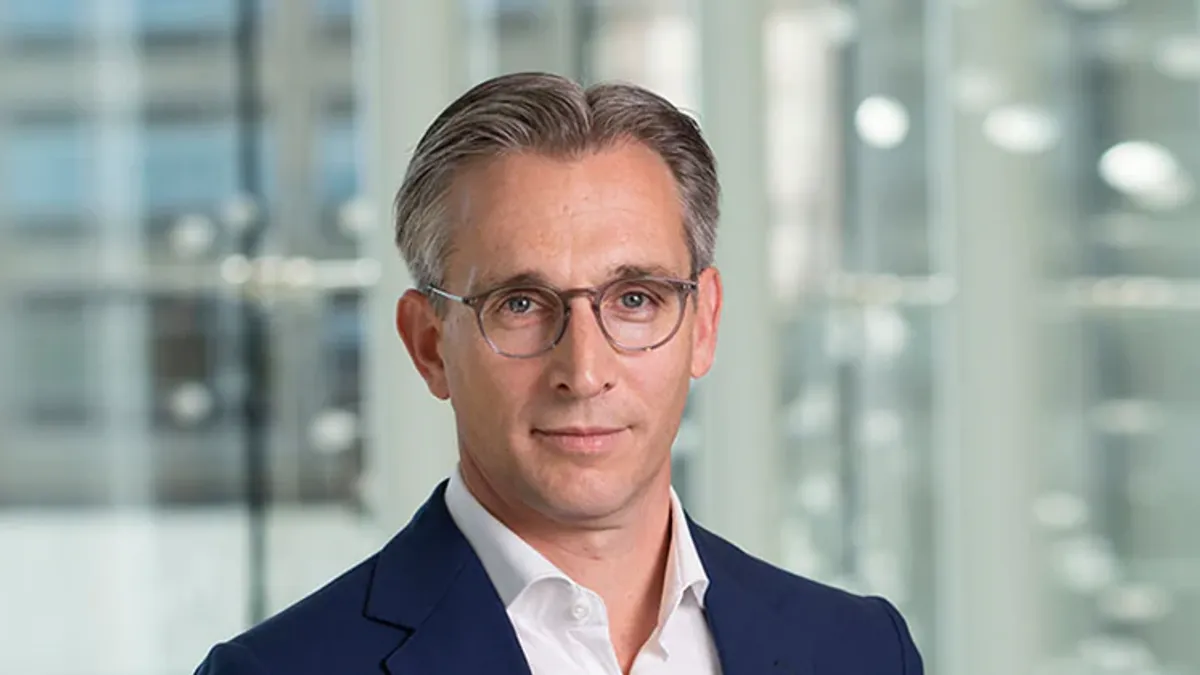Philips, facing an ongoing recall and mounting legal woes, is turning to someone who has helped oversee its response to the recall of millions of sleep apnea and ventilator devices to be the company’s new CEO. That’s a “positive” move, according to analysts at Barclays.
Philips on Tuesday said that CEO Frans van Houten is stepping down and that Roy Jakobs, who currently leads the company’s connected care business, was selected unanimously by a supervisory board as his successor, effective Oct. 15.
Barclays analysts wrote in a Tuesday note that Jakobs’ recent involvement in the recall was “a positive allowing for continuity here.” Continuity may be key for Philips as the recall is ongoing, lawsuits are still pending and the company is currently in talks with the U.S. Department of Justice about a consent decree.
Meanwhile, the company continues to lose share to rival ResMed, which could permanently alter the market.
The Barclays analysts wrote that Philips leadership “has been a major topic of discussion for investors with significant pushback around management execution of the Sleep recall and broader business.” The analysts predicted “meaningful outperformance” of Philips shares on Tuesday, although the stock has not bounced back from recent struggles.
While Philips’ stock rose 2.4% to $20.59 on Tuesday following the news of the leadership change, the shares fell 5.3% in Wednesday trading.
Amid the fallout from the recall, Philips shares have dropped to their lowest levels since 2012.
While Philips initiated the recall in June 2021, the company first told investors about potential health risks with certain sleep apnea and ventilator devices on an April 2021 earnings call. That spurred the beginning of the stock decline.

The recall has been an ongoing problem for the company since it was initiated in June 2021. Since then, the Food and Drug Administration has done facility inspections and ordered Philips to improve communications about the recall and health risks associated with using the devices.
The reports of health risks, including deaths, also keep adding up. Between April 2021 and July 31, the FDA has received over 69,000 medical device reports associated with the recall, including 168 reports of patient deaths.
As of May, Philips has set aside approximately 885 million euros (about $934 million at the time) to address the recall. There are still questions regarding further financial impact stemming from the multiple lawsuits the company faces.
The consent decree also brings more uncertainty for Philips as it could keep the company off the market for even longer and potentially impact manufacturing. The company agreed to a consent decree for its Emergency Care and Resuscitation business in 2017 — which it is still under — that shut down the manufacturing and shipping of certain defibrillator devices in the U.S. The suspension was not lifted until April 2020.
Steve Klink, a Philips spokesperson, declined to comment or provide updates on the negotiations with the DOJ regarding the sleep apnea recall.
More delays for Philips may be ahead as the market environment improves for rival ResMed, which has struggled to meet the surge in demand following the recall due to supply chain challenges that limited how many machines the company can produce and ship to patients.
ResMed CEO Mick Farrell told investors on an Aug. 11 earnings call that the supply chain is still “very much in flux” but improving, particularly for semiconductor chips. He added that the improved supply chain and pandemic environments will help ResMed meet the 12-month backlog that built up amid the Philips recall and COVID-19 crisis.
Meanwhile, Philips is continuing its repair and replacement program. According to an emailed statement, as of July 25, 3 million repair and replacement kits have been produced. Philip plans to have 90% of the program completed by the end of the year.
The spokesperson didn’t say how many repair and replacement kits had been shipped as of Tuesday.



















